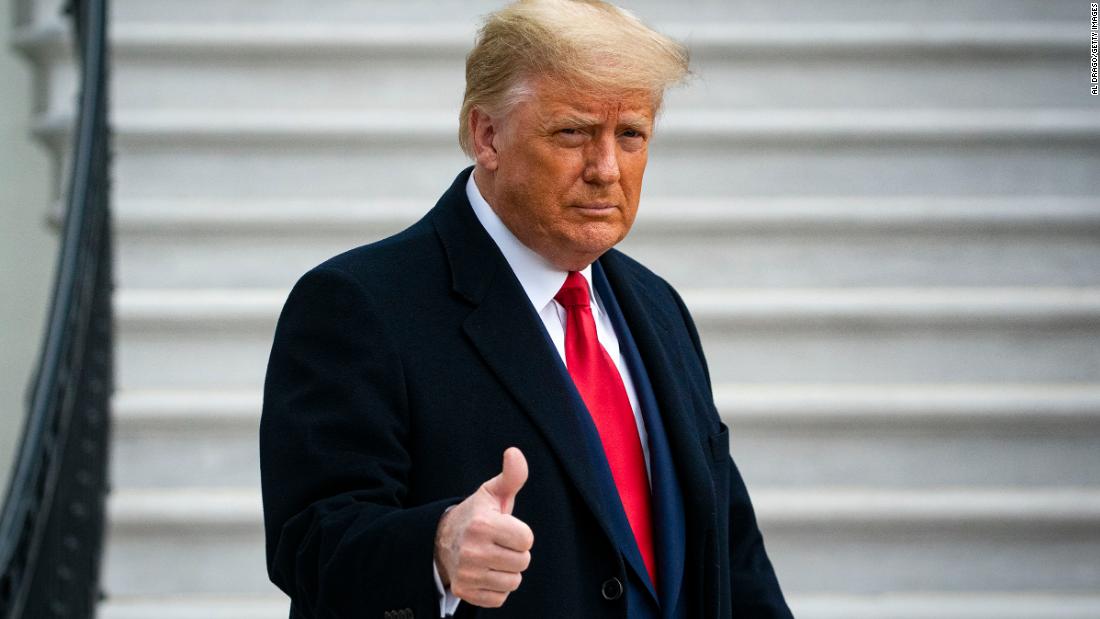
“What this work shows is that masculinity is not just an ideology that men strive to achieve. It’s something we value as a culture,” said lead author Theresa Vescio, a professor of psychology and women’s studies. gender and sexuality at Pennsylvania State University.
“The beauty of masculinity as a cultural ideology is that we can get women involved and support it, even if it subordinates them. We can get men of color, with low socioeconomic status, gay men to support it, even though it is implicitly subordinated, “Vescio said.
That perspective may “explain the rise of Latino and black men who support Trump … or white women who support Trump,” Vescio said.
“This is an interesting study and the results are relatively convincing in terms of the idea that ‘hegemonic masculinity’ predicts the vote and attitudes of candidates even after controlling for other variables we might expect to predict political behavior.” said Christopher Federico, a professor of political science and psychology at the University of Minnesota, who did not participate in the studies, by email.
The results are only observational and cannot show a direct cause and effect, but they match previous research that had found that “valuing dominance” and putting “low value on cooperation” were predictive of support for Trump, Federico said. who is also the director of the university’s Center for Political Psychology Studies.
“It makes sense for people to value a form of masculinity that emphasizes control, toughness, and so on.” support Trump, Federico said, adding that “people who have traditional views on gender and traditional beliefs about” appropriate “roles for men and women who have them in society tend to support Trump more. “.
Seven studies in two electoral periods
The researchers consulted more than 2,000 people in seven separate studies during two election periods. Six of the studies were conducted by Vescio and his partner in the days and months after Trump won his presidential battle over Democratic candidate Hillary Clinton in 2016. The seventh study was conducted 50 days before the election. November 2020, in which Trump was defeated. per former vice president of the United States Joseph Biden.
Participants were recruited to the Pennsylvania State University student reserve, as well as two crowdsourcing applications. Students received a partial class credit while the rest of the participants received a payment of $ 0.50 or $ 9.66 per hour.
Although a dominant male preference was predictive of support for Trump, the study found that “prejudicial attitudes were more consistent predictors of voting.” “Further research is needed to fully understand the results predicted by (hegemonic masculinity) versus open prejudice, ”the study said.
Matthew Feinberg, associate professor of organizational behavior at the Rotman School of Management at the University of Toronto, worried about the data being collected after Trump’s 2016 victory over Clinton.
“It may be that people’s attitudes, especially when it comes to masculinity, have been shaped for Trump to become president,” Feinberg said in an email. “A lot of people held their noses and voted for him in 2016, choosing to vote for his favorite party despite Trump’s behavior and his portrayal of hegemonic masculinity.
“However, processes such as cognitive dissonance dictate that people often reconcile their attitudes with behaviors in which they have participated,” Feinberg continued. “If so, people with attitudes about Trump and his support for hegemonic masculinity could come to believe that they also maintain attitudes more in line with Trump.”
vescitur noted the 2020 study that had examined attitudes before the election and said cognitive dissonance does not explain the data it found.
“We can’t rule it out completely. But the data isn’t entirely consistent, because even when we control Republicans and Democrats we get the effects beyond,” he said.
More than a “precarious” male identity
The findings of the seven studies also suggest the endorsement of “hegemonic masculinity” to predict more support for Trump than a concept called “precarious male identity” or PMI, in which “masculinity is gained and maintained through samples of continuous masculinity behavior ”and“ Momentary lapses in manifestations of masculinity behavior can threaten masculinity, ”the study authors wrote.
Having a precarious male identity has traditionally been seen as a key reason why men might want to align with Trump, but did not explain his support among women and some minorities, according to the study.
“The underlying idea is that masculinity is more fragile than femininity and needs to constantly earn and maintain itself publicly. Men who feel (or have been felt) that their status as men are insufficient tend to give more support. to Trump, “Federico said. dit.
“One of the reasons is that Trump – at least in the personality he publicly exercises – exudes an exaggerated dominant masculinity. Supporting him can therefore be a way to borrow this ethos or show it. one is male supporting a “male” proxy, “he said.
There are also studies that have found that the PMI is associated with other “aggressive attitudes, such as support for gun culture and militarism,” Federico said, as well as “increased sexism and opposition to equality.” “.
“To the extent that Trump is a supporter of these positions, people may indirectly end up supporting Trump more because he is believed to support them,” he added.
However, the fact that the new study found that PMI was less predictive than a preference for hegemonic masculinity makes sense in both sexes, Federico explained.